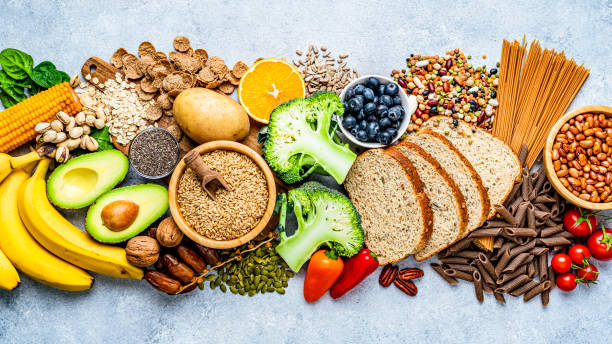Introduction
Organic food has seen a significant rise in popularity over recent years, with more people becoming conscious of their health and the environment. Defined as food produced without synthetic pesticides, fertilizers, genetically modified organisms (GMOs), or irradiation, organic food promises a more natural and eco-friendly option. This article explores the benefits, trends, and frequently asked questions about organic food, shedding light on why it’s becoming the go-to choice for many consumers.
Benefits of Organic Food
One of the primary reasons people turn to organic food is the perceived health benefits. Organic food is free from synthetic pesticides and fertilizers, reducing exposure to harmful chemicals. Additionally, organic farming practices promote soil health and biodiversity, resulting in more nutritious produce. Studies have shown that organic fruits and vegetables can contain higher levels of antioxidants and essential nutrients compared to their conventionally grown counterparts.
Moreover, organic livestock is raised without antibiotics or growth hormones, leading to healthier meat and dairy products. This reduces the risk of antibiotic resistance, which is a growing concern in conventional farming.
Environmental Impact of Organic Farming
Organic farming practices are designed to be sustainable and environmentally friendly. By avoiding synthetic chemicals, organic farms help protect water sources and promote soil health. Techniques such as crop rotation, composting, and biological pest control enhance soil fertility and reduce the environmental footprint of agriculture.
Furthermore, organic farming supports biodiversity by creating habitats for various plant and animal species. This is crucial for maintaining ecological balance and resilience against pests and diseases. The use of cover crops and reduced tillage also helps sequester carbon, contributing to the fight against climate change.
Trends in the Organic Food Market
The organic food market has seen impressive growth globally. According to recent reports, the organic food market is expected to reach $320.5 billion by 2025. This growth is driven by increasing consumer awareness about health and environmental issues, as well as government support for organic farming initiatives.
Consumers are not just buying organic produce; they are also seeking out organic processed foods, beverages, and snacks. The rise of organic food brands and the availability of organic products in mainstream supermarkets have made it easier for people to incorporate organic options into their daily lives. Additionally, organic food delivery services and subscription boxes have gained popularity, offering convenience alongside health benefits.
The Cost of Going Organic
One of the common concerns about organic food is its cost. Organic products are often more expensive than conventionally grown ones, primarily due to the labor-intensive farming practices and the lower yields associated with organic farming. However, many consumers are willing to pay the premium for the perceived health benefits and the environmental impact.
To make organic food more affordable, some strategies include buying in bulk, joining community-supported agriculture (CSA) programs, and prioritizing organic purchases for the “Dirty Dozen” – a list of produce with the highest pesticide residues.
Organic Food Certification and Labeling
Understanding organic food labels is crucial for consumers. In the United States, the USDA Organic seal indicates that the product meets strict organic farming and processing standards. Similar certification bodies exist in other countries, ensuring that consumers get what they pay for.
It’s also important to distinguish between different labels such as “100% organic,” “organic,” and “made with organic ingredients,” each having specific criteria. Reading labels carefully can help consumers make informed choices and avoid misleading marketing claims.
Conclusion
Embracing organic food is a step towards a healthier lifestyle and a more sustainable planet. While the cost may be higher, the benefits to health and the environment can outweigh the financial investment. By supporting organic farming, consumers contribute to a system that values quality, sustainability, and well-being.
FAQs
What does “organic” mean?
Organic food is produced without synthetic pesticides, fertilizers, GMOs, or irradiation. Organic farming practices emphasize sustainability, soil health, and biodiversity.
Is organic food healthier than conventional food?
Organic food can be healthier due to lower levels of pesticides and higher nutrient content. However, the overall health benefits depend on a balanced diet and lifestyle.
Why is organic food more expensive?
Organic farming is more labor-intensive and often yields less produce, leading to higher prices. The cost reflects the sustainable practices and quality of organic products.
How can I afford organic food on a budget?
Buying in bulk, joining CSA programs, and focusing on the “Dirty Dozen” for organic purchases can help manage costs. Prioritizing certain organic foods can also be effective.
How can I ensure the food I buy is truly organic?
Look for certification labels such as the USDA Organic seal. Familiarize yourself with different organic labels and read product descriptions to ensure authenticity.

